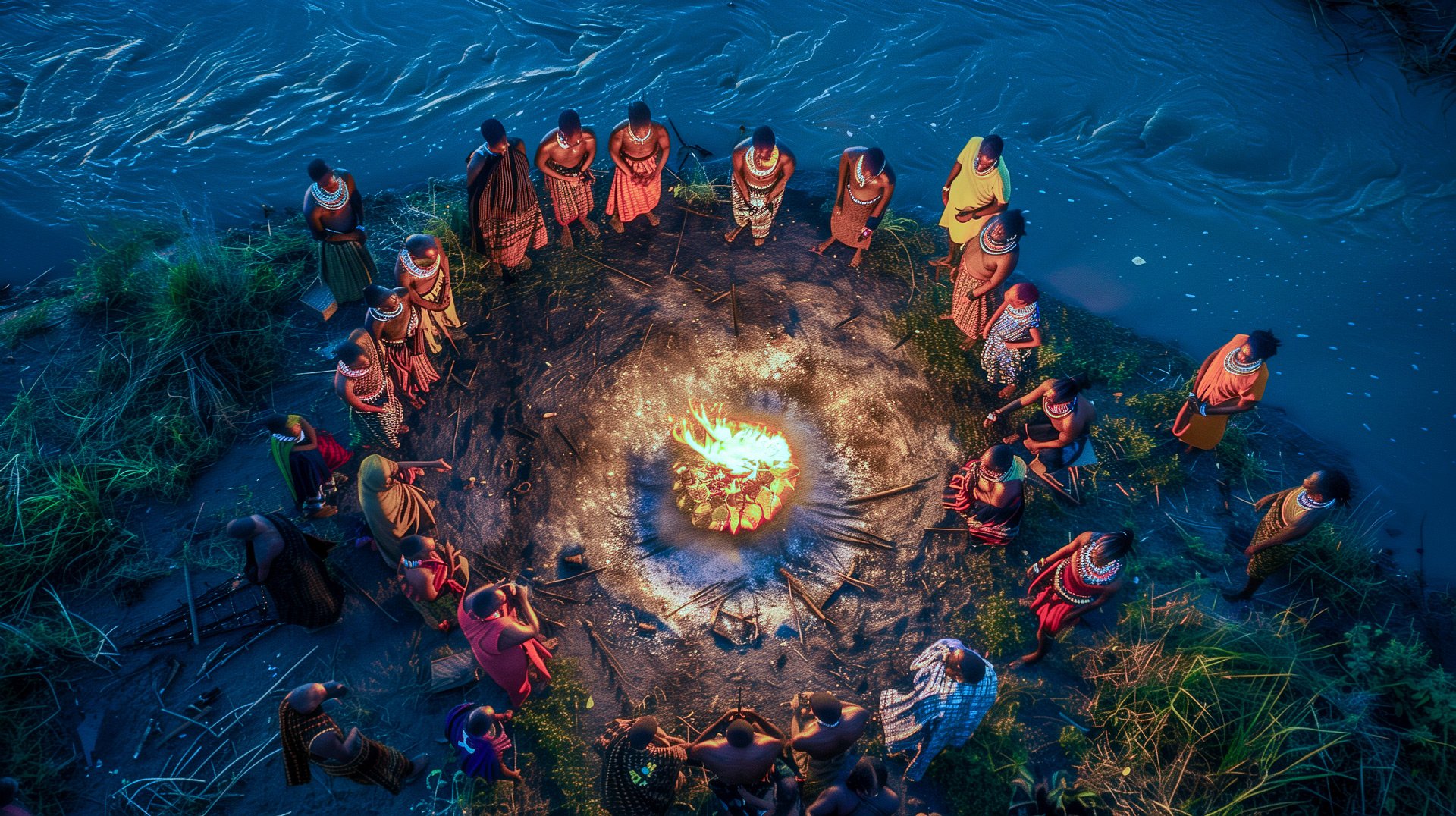Embark on an enlightening journey through the heart of African spirituality, where rivers are more than just geographical features—they're conduits of ancestral wisdom, gateways to spiritual realms, and living embodiments of the divine. This blog post delves into the profound significance of rivers in African mythology, exploring their multifaceted roles and the timeless lessons they offer.
Part One: Echoes of Ancestral Voices
Rivers are the storytellers of Africa, whispering tales of triumph, tragedy, and everyday life from generations past. They are living entities, imbued with the spirits and wisdom of ancestors. By listening to their murmurs and ripples, we can connect with our heritage, understand our collective identity, and gain insights into the transient nature of human existence. The Zambezi River, with its guardian spirit Nyami Nyami, exemplifies the sacredness and wisdom attributed to these waterways.
Key Takeaway: Rivers offer a connection to our ancestors and a deeper understanding of our place in the world.

Part Two: Currents of Time
Rivers symbolize the cyclical nature of time, the eternal flow of life, death, and rebirth. They serve as temporal bridges, connecting past, present, and future. The Nile, with its rhythmic floods and retreats, exemplifies this cyclical nature. It's a reminder that life is a continuous journey of renewal and transformation.
Key Takeaway: Embrace the cyclical nature of life and find hope in its constant renewal.
Part Three: Waters of Transformation
Rivers are not just physical boundaries; they are metaphysical gateways to spiritual realms. They host transformative rites and rituals, where individuals and communities seek cleansing, healing, and rebirth. The riverine baptisms of the Yoruba and purification ceremonies in the Limpopo River exemplify the power of water to wash away the old and usher in the new.
Key Takeaway: Engage with water rituals to renew your spirit and embrace the transformative power of change.

Part Four: Spirited Streams
Many African cultures deify rivers, seeing them as embodiments of the divine. The River Gambia, for example, is worshipped as a manifestation of Mami Wata, the powerful water deity representing both life and death. This reverence for rivers fosters a sense of stewardship and highlights the interconnectedness of all life.
Key Takeaway: Recognize the sacredness of rivers and respect their role in sustaining both our physical and spiritual well-being.
Part Five: Philosophical Undercurrents
Rivers serve as powerful metaphors for the journey of life, offering insights into resilience, ethical dilemmas, and the search for meaning. The Nile, with its life-giving floods, teaches us about renewal and adaptation. The Congo River, with its turbulent history, reflects the complexities and challenges of human existence.
Key Takeaway: Use the river's journey as a guide for navigating life's ups and downs, embracing both the calm and the turbulent waters.

Conclusion
The rivers of Africa are more than just waterways; they are repositories of cultural memory, spiritual gateways, and sources of philosophical reflection. They remind us of our connection to the past, our responsibility to the present, and our potential for renewal and transformation. Let us honor these sacred waters and the wisdom they offer, ensuring that they continue to flow freely for generations to come.
By exploring the mythology and symbolism surrounding African rivers, we gain a deeper appreciation for their role in shaping our lives and our understanding of the world. May this journey inspire you to seek out the rivers in your own life, both literal and metaphorical, and embrace the wisdom they have to share.
